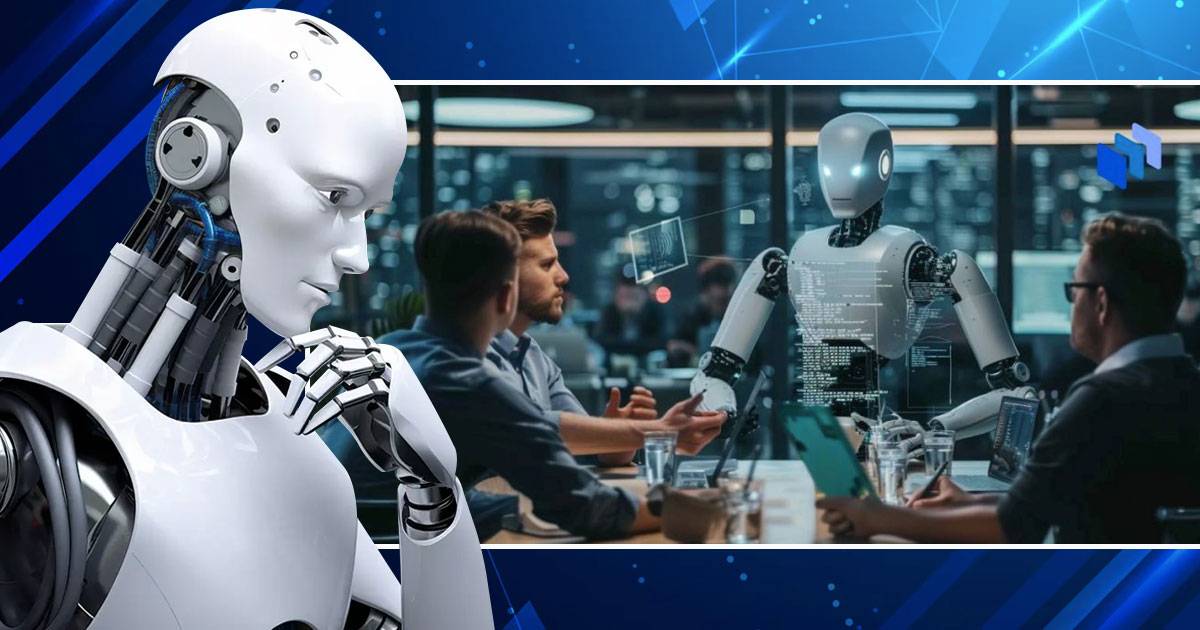Will AI Replace Programmers and Software Engineers in the Future?

The question of whether artificial intelligence (AI) will replace programmers has become increasingly relevant as technology evolves. AI’s advancements have led to the development of tools that can automate various aspects of coding and software engineering. This progress raises concerns about the future role of human programmers. While AI can certainly handle certain tasks, understanding its true impact on the field requires a closer look at how these technologies are shaping programming and software development.
How is AI Affecting Programming and Software Engineering
AI is making significant strides in programming by introducing tools that enhance efficiency and productivity. For instance, AI-driven code completion tools are now capable of suggesting code snippets or even generating entire sections of code based on high-level descriptions. This automation helps reduce the time programmers spend on repetitive tasks, allowing them to focus on more strategic and intricate aspects of their projects.
Furthermore, AI’s role extends to software testing and debugging. Automated testing tools powered by AI can rapidly identify errors, inconsistencies, and vulnerabilities in code. This capability not only accelerates the development process but also improves the overall quality and reliability of the software. By automating these critical tasks, AI is changing the way developers approach their work, making the development cycle more efficient and less prone to human error.
Limitations of AI in Programming
Despite its advancements, AI still has notable limitations when it comes to programming:
- Understanding Context: AI systems often struggle to fully comprehend the context in which they operate. They may generate code based on patterns but may miss the specific requirements or nuances of a given problem, leading to suboptimal solutions.
- Creativity and Innovation: While AI excels at automating existing solutions, it lacks the creativity needed for innovative problem-solving. AI tools can assist with known problems but are not equipped to invent new approaches or technologies from scratch.
- Complex Problem-Solving: Human intuition and experience are crucial for addressing highly complex or novel problems. AI may provide valuable assistance but may not always offer effective solutions for unique or unprecedented challenges.
- Ethical and Social Implications: AI systems can inadvertently introduce biases or ethical concerns into software development. Human oversight is necessary to ensure that these issues are addressed appropriately and that the software developed is fair and unbiased.
- Dependency on Quality Data: AI tools require large amounts of high-quality data to function effectively. If the data used to train these systems is poor or biased, the resulting code may be flawed or problematic, highlighting the need for careful data management.
Is There a Future Where AI Will Eventually Replace Programmers?
The future of AI in programming is more about collaboration than outright replacement. AI is expected to handle routine and repetitive tasks, freeing up programmers to concentrate on more complex and strategic aspects of their work. This shift will likely lead to a change in the role of software engineers, emphasizing their ability to work effectively alongside AI tools.
Rather than completely replacing human programmers, AI will transform the nature of their work. The focus will shift towards leveraging AI to enhance productivity and innovation, with human expertise remaining essential for tasks that require creativity and nuanced understanding.
When Will AI Replace Programmers and Software Engineers?
Predicting when AI might significantly replace programmers and software engineers is challenging due to the rapid pace of technological advancements and the various hurdles that need to be overcome. Although AI is capable of automating certain programming tasks, it is currently more about augmentation than full replacement.
The timeline for AI dramatically altering programming roles will depend on several factors, including future technological developments and the rate of adoption across different industries. While AI will continue to evolve and take on more responsibilities, a complete replacement of human programmers is still likely some way off.
The Future of Programming
Looking forward, the future of programming will likely be characterized by a closer partnership between humans and AI. Software engineers will increasingly collaborate with AI tools to streamline workflows, improve efficiency, and tackle complex problems. This collaboration will foster new opportunities for innovation and development in the field.
As AI technology progresses, it will continue to shape how programming is approached, but human expertise will remain vital. The integration of AI into programming practices will enhance and complement human capabilities, leading to a more dynamic and productive industry. Embracing these advancements will be key to thriving in the evolving landscape of software development.
Embracing AI in Programming: A Collaborative Future
AI is undeniably transforming the programming landscape by automating routine tasks and boosting productivity. However, rather than replacing software engineers, AI is set to work alongside them, allowing for greater focus on creative and complex problem-solving. The future of programming will involve a synergy between human skills and AI technology, resulting in a more innovative and efficient field. Embracing AI’s potential will be essential for staying competitive and advancing the industry.
